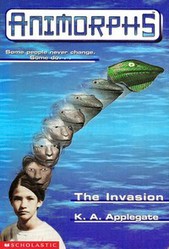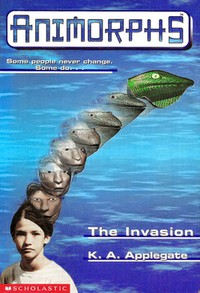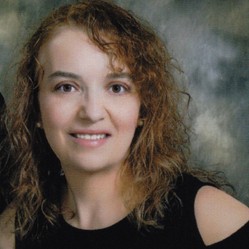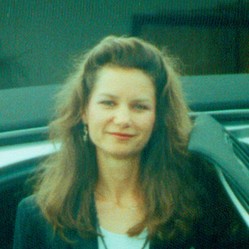Writer: It's one of the essential things I define myself as. I think of myself as a writer before I think of myself as a human, a woman, a wife, a nurse's aide, even though I am a human/woman/wife 24/7 and nurse's aide 8/5; I don't spend hardly any time writing, though I would love to do so more often. Correction: I need to write more often. It is the oxygen for my soul, and without it, I am gasping for air, struggling to function in a world where what I have to say, the stories I have to tell, (in both senses of the phrase "have to") is the essence of who I am as a person.

Writing: The Oxygen For My Soul
by JSheaForrest
Wizzography of J Shea Forrest, writer, wife, and dreamer.
The Never Ending Story
All I want for Christmas is a story that never ends
Books are my addiction. When I was growing up, my mom had to limit how many books I could check out from the library. If she hadn’t, I would have easily taken whole shelves of books home after each weekly trip, and devoured them all long before our next trip, much to the detriment of my chores, health, and school work. (All of which I would have aced, if I hadn’t been reading instead of doing the easy-but-time-consuming homework.)
I remember how often, my mom would drag me out of whatever book I was reading and insist I go play outside. Since there wasn’t any kids near my age in our neighborhood, and my only outdoor toys were a rubber ball, a scooter that I was only allowed to ride up and down our short street, and a dog whose idea of “fetch” was “grab the stick and run off with it”, I spent most of my playing-outside time nestled high in the branches of the one tree in the backyard. (There was also a giant bush masquerading as a tree whose sole purpose in life was to magically draw that rubber ball out of the air and into its tangled-up branches and refuse to let go. But as I said, it wasn’t really a tree. And if it was, you sure as heck wouldn’t find me trying to climb it.)
In the arms of the real tree, leaning against the comfortable sturdiness of the trunk, I’d stare out into the leaves and sky and daydream about whatever book I’d been reading inside, imagining what might happen next, or what it would be like to be one of the characters.
Then in fourth or fifth grade, I saw for the first time a movie that has had a big influence on me: The NeverEnding Story. I was in awestruck by it before even watching it. The title alone grabbed me. What book lover hasn’t at one time or another wished for a book that never ends but keeps getting better and better?
And then there’s the story within: the story of a boy, Bastian, who steals the titular book from a bookstore and as he reads it, finds that he himself is a character in the book.
I remember being knocked back by that idea: Really being in the world of the story. Not pretending to be a character that already exists, but being your own character.
That may sound trivial, especially to writers or readers familiar with fanfiction, where self-insertion stories are commonplace. But to my ten-year-old self, this idea was groundbreaking.
Suddenly my daydreames skyrocketed into placed they’d never gone before: How would I get into Storybrooke (the location of the Baby-sitters Club books), Prydain (from Lloyd Alexander’s Chronicles of Prydain books) or Narnia (C. S. Lewis’s Narnia books.) And once I got there, what might happen?
But those daydreams remained just that – stories I told myself for my own amusement.
And then… well, let’s not get into that just yet.
Misconception, Misunderstandings, and Outright Lies
Or, why I never dreamed I could actually be a “real writer”.
I was a straight A student all through school. (Except for that one stray C- in Algebra 2 which I’ll gladly blame on a teacher who did nothing but read straight out of the book and not at all on my reading fiction under my desk.) English class was the easiest for me. When you read a million words a month or more, the rules of written English get absorbed via literary osmosis.
But I hated writing, especially essays and book reports. I had nothing interesting to say about my summer exploits – which mostly involved reading, and maybe teaching my dog a fancy trick or two, such as how to walk on a leash without tripping his owner. And I hated analyzing the books I read and enjoyed. What’s more fascinating: trying to figure out the theme in The Lion, the Witch, and the Wardrobe; or reading about how two brothers and two sisters (and one talking lion) stopped the witch who made it always winter and never Christmas?
But, alas, I was told you had to be good at writing nonfiction to be allowed to write fiction. And somehow in my head, this became: You’ll have to suffer through years of working at a newspaper or magazine, writing about parades and missing dogs and – horror of horrors! – sports – before you could even set pen to paper and write an honest-to-goodness “real story”.
I blame this entirely on my sixth grade teacher who heartily disapproved of any writing that was non-factual, and on students who spent every moment they could possibly get away with reading books filled with decidedly non-factual stories, who still managed to ace every test and assignment. And I don’t blame it at all on the fact that I spent every aforementioned moment reading the aforementioned books, and spending no time at all really considering my future as an author.
Instead, when I thought of my future self, it was as a ballerina (thanks to Jessie of the Babysitter’s Club) or as a warrior queen (thanks to Queens Susan and Lucy of Narnia) or, in my more realistic moments, as an architect… specializing in castles and magician’s huts and other buildings of a magical nature.
And then in eleventh grade, my world abruptly changed.
When I Learned Not To Judge a Book by Its Cover – Literally
Forced by dwindling book supply, I finally pick up the overlooked, easily dismissed books, that once read, changed me into the writer I am today
My school, where I attended 7th-12th grade, was tiny. How tiny? you ask.
There were 12 people in my graduating class.
No, that’s not a typo. Twelve. One dozen. That’s it.
So our school library, as you can imagine, was pretty tiny. Three four-shelf bookcases for regular fiction, two three-shelf ones for picture books, one and a half five-shelf ones for adult fiction, (and I don’t know how many for nonfiction; I didn’t spend much time looking at those!) By ninth grade, my school librarian was ordering books from the big city library for me to read.
And even the somewhat-bigger-than-our-school’s town library, in the town twenty minutes from school, held very few books I hadn’t yet read.
So in the summer between eight and ninth grade, desperate for something new to read, I picked up a book I had overlooked several times before. One I had judged all too quickly by its cover. A thin little book with a boy and a lizard on its cover. One I had dismissed as being as animal book for young readers, without bothering to read the back of the book blurb, or even the title.
That book was The Invasion, the first book in K. A. Applegate’s Animorphs series, a series that changed my life.
The back featured this quote: “We can’t tell you who we are. Or where we live. It’s too risky, and we’ve got to be careful. Really careful. Because if they find us… well, we just won’t let them find us. The thing you should know is that everyone is in really big trouble. Yeah. Even you.” For a reader whose first story-love involved a reader literally pulled into the story, that last line was directed right at me in more ways than one.
The series is a set of 60-some-odd books written at about a third grade reading level, each book about 20,000 words. That’s one-third the size of Harry Potter and the Sorcerer’s Stone; all together, the series is about two and a half times the length of all the Harry Potter books combined. Within those sixty books is a story with a deep and thought-provoking storyline, with themes far beyond the grade level its written at. I’ll review it in depth at a later date, I’m sure.
But I fell in love with it. With the characters, the story, the moral dilemmas. I read the whole series over one brief summer, all but for the last few books which were released the autumn of my tenth grade year.
I remember finishing the final book while waiting for the dismissal bell in art class. I remember wanting to throw the book up against the wall. I remember holding back tears of anger and frustration.
Suffice it to say, the ending of the series is not a very popular one.
With the help of a friend who wrote fanfiction, I began to write my own, intending to “fix” that horrible ending. (Side note: I don’t feel it’s so horrible now, of course.) I wrote the beginning of a sequel, one that was to pick up right where the series left off and patch up the broken shards of story. But I discovered, after writing only a handful of chapters, that I liked writing my original characters better than I did K. A. Applegate’s. Although I later went back and wrote another twenty or so chapters on that still-unfinished story, I pretty much started writing my own thing and haven’t looked back since.
Dreams, Shattered Once, Now Restored
I wanted to become a real writer, making my living writing stories. I crossed over to nonfiction and checked out every book I could find on writing and publishing. And, by the time I graduated high school, I had written and completed my first story-for-print: Last Magewood Standing, a 40-page story about a healer looking for the last magic-powering tree to cure a plague. I was so proud of it. I sent it off to Gordon Van Gelder of The Magazine of Fantasy and Science Fiction, and anxiously waited for a reply.
Two days later, I got a form rejection. My mom actually got it first, and didn’t show me for a week because she knew I’d be devastated.
She wasn’t far from the truth. I was angry and upset – that was my best work! How dare they take less than a day to look at it and say, No? My first rejection made me feel like I was the one rejected. As if it was me being judged and not my writing.
But I persisted. I spent a year taking a correspondence course on writing articles and short stories, which I hated due to the overemphasis on “short” in short stories (making it more flash fiction than short stories, which is even harder for a lover of epic fantasy to write) and my instructor’s belief that I would be better off writing articles. I should never have sent in that accidentally-awesome article on what and what not to do when your Florida vacation is interrupted by a hurricane. (I wish I had had that vacation back during the “essay about your summer” days!) I quit the course, got a real job as a nurse’s aide at a hospital, and slowly let my dream fade away.
And slowly, I too began to fade away.
I began to sleep a lot, and not just because I worked nights. I grew anxious and restless. Reading mounds of books no longer satisfied, nor did endless hours trawling the web. Nothing satisfied… until I got The Idea.
I’m not really sure when The Idea was born. Perhaps, instead of like a child emerging from the womb, The Idea was more like dawn slowly rising out from the shadows of midnight.
The Idea was for a story, set in the same world as Last Magewood Standing, but starring my original characters from the Animorphs fanfiction. Those who know me, know this story as Cord of Three: The Search.
I’ve worked on this story for years. I’ve come at it from many different angles. I’ve given up on it for months at a time, only to come back and write twenty pages in one go. Each time I stop writing, it’s like my soul stops breathing; like I’m slowly suffocating under the weight of the ocean, but each neglected breath, a moment in real time, is a week in metaphor time, so I barely notice it until I get to where I must surface or drown. Each time I come back to writing – to storytelling, to be precise – it’s like resurfacing, gasping for breath. At first, forcing the air down is painful. But then, it’s like, Why did I ever think I could live without this?
It’s obvious to me now: I can’t.
And from now on, I’ve resolved that I won’t.
You might also like
Welcome to sockii's worldWho is sockii? If you're asking yourself that question, let me introduce myse...
Coletta Teske, Writer for HireColetta Teske has been a freelance writer for over 30 years. She is a native ...




 Choosing the Best Bible Translationon 07/11/2012
Choosing the Best Bible Translationon 07/11/2012
 Scripture Memory Made Simpleon 07/10/2012
Scripture Memory Made Simpleon 07/10/2012


Comments
It seems, Shea, that you have a writer's soul, and that's wonderful. I wonder, though, how many people can be full time writers. It's hard to achieve. Good luck.
Brenda, your mention of a book mobile, which we in Britain call a travelling library, brings back memories. Before they built the libraries on our hastily erected post-war council estate, we had to await the weekly library visit. There was a routine for me of going on library day. I had two tickets, [all my age group were allowed] and one night when I was ten I finished both books and had to wait a week.
Good luck with your writing! Have you published your book?
Oh the gifts of reading and writing, how wonderful, to not give up, go full steam ahead!
My parents also told me not to borrow so many books from library. So I started to read REALLY big books with small letters.
About being a full time writer, I can tell as being myself for over two decades now (I hope this doesn't sound I am old, because I am not!), I can tell you every job, full time, part time, every exam, passed or failed, every human being, well known or only a short episode in your life, everything adds to who you really are. And nobody is 100 percent writer. As you said you are full other things and writing is only one way to express yourself to others.
Wish you good luck on your life journey:)
Lol Brenda. My grandma's favorite comment: "You're going to ruin your eyes reading in such dim light!" Then she'd turn on the bright light and I'd be blinded by the glare and have a harder time reading.
When I realized I could read, I'd make a couple of trips to the bookmobile that stopped around the corner from where I lived. I'd check out a huge stack of books and hide some under my shirt, because I knew she would disapprove of me checking out so many. My mother's favorite comment, "You're going to ruin your eyes if you don't stop reading all the time."
Thanks Sheila. :)
Hi JShea! I can identify with your struggles. And don't worry that you may have to work as a nurse's aide for quite a while. It's a noble profession that will give you lots of experience with understanding human nature that will make you an even better writer. Having a regular writing routine that you can persist in, despite whatever else you may have to do, will bring you closer to accomplishing your goals. There are very few writers who can support themselves only by their writing. Even some of those whose books you so love had to teach or do other work that used up their time. I find myself that sometimes when I step back from my writing projects for weeks or even months, I can tackle them with new insights. I also find it helps if I carry along a notebook I can write in wherever I go and jot down ideas, impressions, etc, as I eat my lunch or linger over a cup of tea. I'm sure you'll find your own writing habits that will sustain you. I look forward to reading your serial. All the best!
I wish you luck and lots of patience when formatting your book for Amazon ;-) SY
The end of next month I'll be doing just that, Sam. :) I have a novella called Key of Earth and Sky that I'll be posting here as a serial story. At the end of each of the nine sections, (one per week) I'll post a link to where you can buy the full story. And if that goes over well, I have others I'll be doing the same with. Wish me luck!